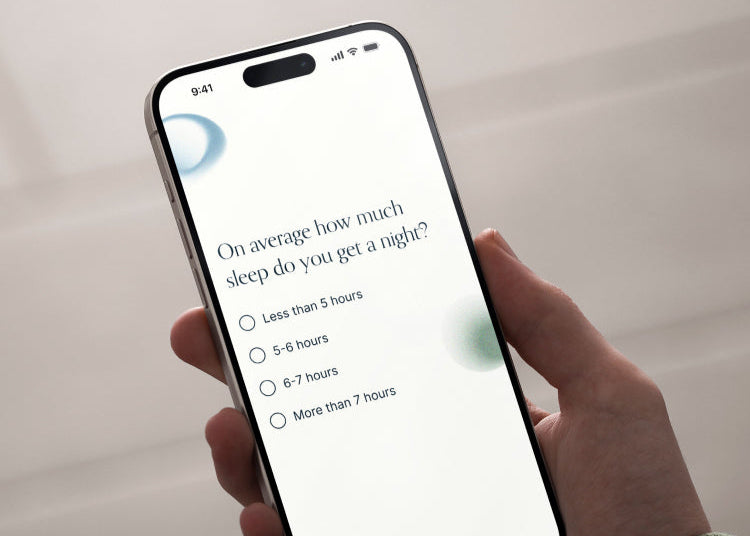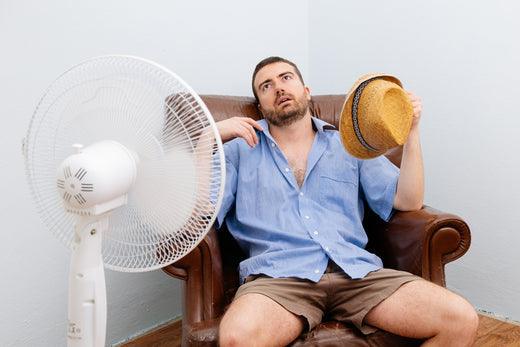
Hot Flashes in Men
- Written by: Corentin Hugot
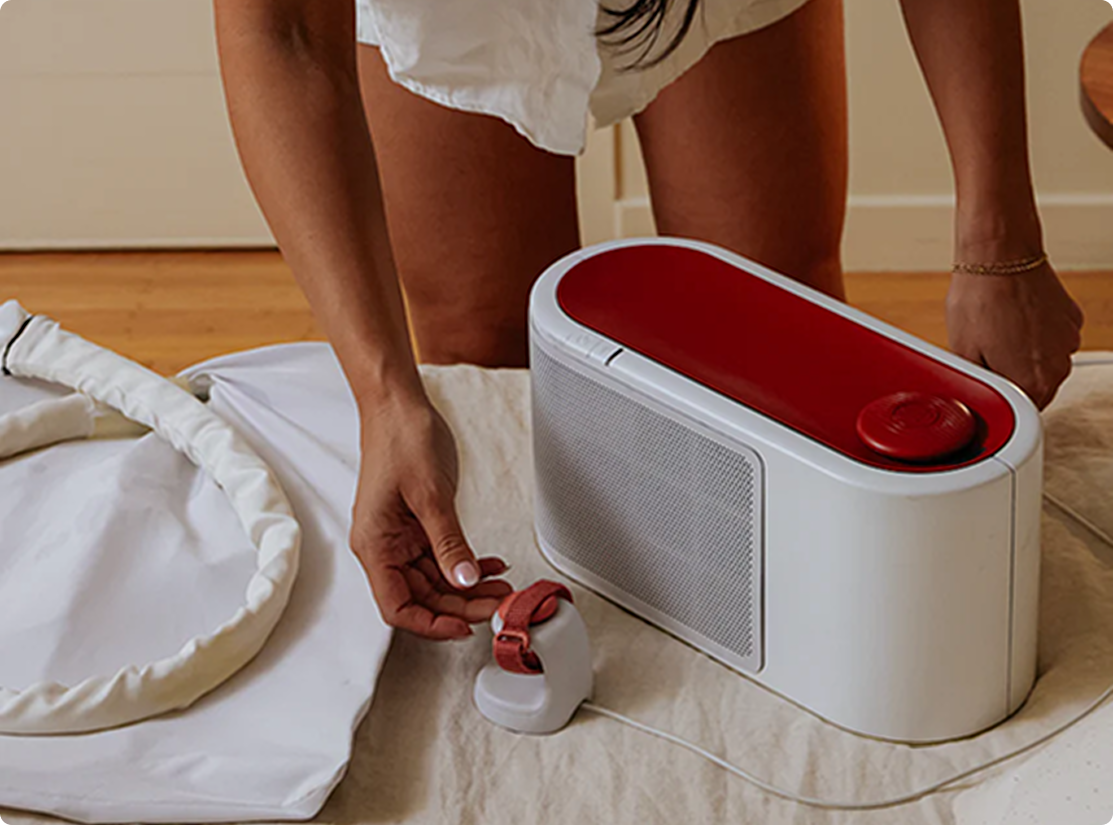
Sleep Cool, Wake Refreshed
Terra’s smart cooling system stops hot flashes before they wake you.
Predicts & cools in seconds
No noise, no interruptions
Wake up refreshed
Spend $50 or more for free shipping

Hey there, gentlemen! Ever feel like you're suddenly caught in a tropical heatwave, even when it's snowing outside? Believe it or not, you're not alone. Hot flashes can strike men too, and they’re as real as they are unexpected. So, let's turn down the heat and dive into everything you need to know about hot flashes in men!
You might be wondering, "Why me?" The answer lies in the fascinating world of hormones. Just like our female counterparts, men can experience hormonal fluctuations, especially as they age. Testosterone levels can dip, and when they do, your body might throw a heat party you never asked for. And it's not just hormones—medications, lifestyle choices, and certain health conditions can all RSVP to this unwanted fiesta. If you’re curious about how similar symptoms affect women, check out our article on Hot Flashes Causes.
So, what does a male hot flash feel like? Picture this: you're sitting in a meeting, feeling fine, when suddenly you’re engulfed in a wave of heat. Sweat beads on your forehead, your face turns red, and you’re contemplating diving into the nearest ice bath. These episodes can be brief but intense, leaving you feeling like you’ve just run a marathon in the Sahara.
Hot flashes don’t discriminate—they can strike anytime, anywhere. From the boardroom to the bedroom, these heat surges can mess with your mojo. Sleep might become a sweaty battle, your mood might take a hit, and your overall quality of life could suffer. But fear not, there are ways to keep your cool. For tips on improving sleep during these episodes, visit our article on Menopause and Lack of Sleep.
First up, let’s talk lifestyle tweaks. Dressing in layers, keeping a fan handy, and sipping on cold drinks can be lifesavers. Exercise, believe it or not, can help regulate your body temperature. Learn more about the importance of staying active in our article on Exercise and Menopause.
There are medical treatments available—hormone replacement therapy, anyone? And don’t forget the power of mindfulness and relaxation techniques. A little meditation can go a long way in cooling those internal fires.
Let’s bust some myths while we’re at it. Hot flashes don’t make you less of a man. They’re a natural, albeit annoying, part of life for some. Embrace the journey with a sense of humor and a hefty dose of grace. After all, laughing at yourself is half the battle won.
Meet John, a 55-year-old who tackled his hot flashes head-on. He swapped his heavy meals for lighter, more frequent snacks, cut alcohol and caffeine, embraced a regular exercise routine, and found solace in meditation. And then there’s Mark, who discovered Amira’s Terra sleep product to control his hot flashes at night and has slept soundly ever since. These men show us that with a bit of effort and a lot of patience, you can keep those hot flashes in check.
To wrap things up, remember that hot flashes in men are more common than you might think. By understanding the causes, recognizing the symptoms, and implementing some cool strategies, you can navigate this fiery phase with confidence. Stay positive, and embrace the journey knowing there is an answer for you. After all, it’s just another chapter in the adventurous book of life.
Here's to living a life where you control the thermostat, not your body. Cheers to a cooler, calmer, and infinitely more comfortable you! Feel free to contact us for any topic or if you want to talk about something.

Terra’s smart cooling system stops hot flashes before they wake you.
Predicts & cools in seconds
No noise, no interruptions
Wake up refreshed

Feeling overwhelmed by the emotional rollercoaster of menopause? You're not alone. Between hot flashes, sleep disruption, and hormonal shifts, stress can feel like an unwelcome constant companion during this transition....
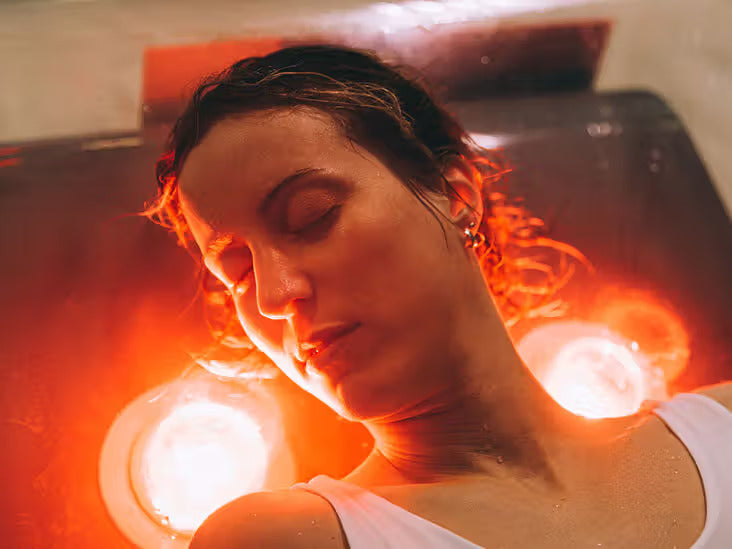
Feeling Hot But No Fever? Understanding Hot Flashes Without Fever Feeling suddenly, intensely hot, flushed, and sweaty, but your thermometer reads normal? You're not alone, and it's not always just...
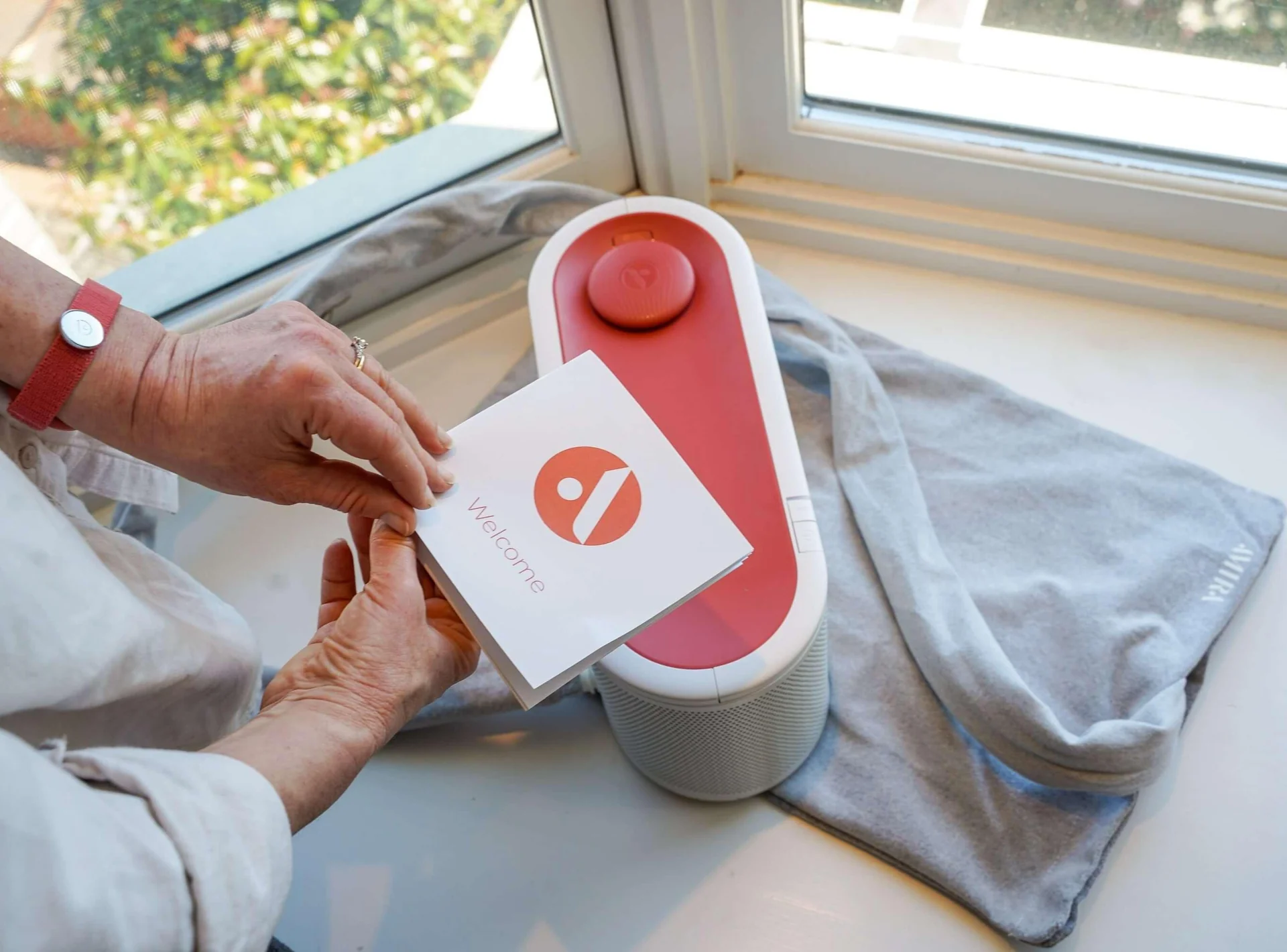
At Amira, we understand that sleep is sacred. It's that time for your body to heal, restore, and reconnect. But for many women, menopause can make that rest elusive. Hot flashes...
Answer a few questions to uncover solutions tailored to you — plus get 20% off as a thank-you!

